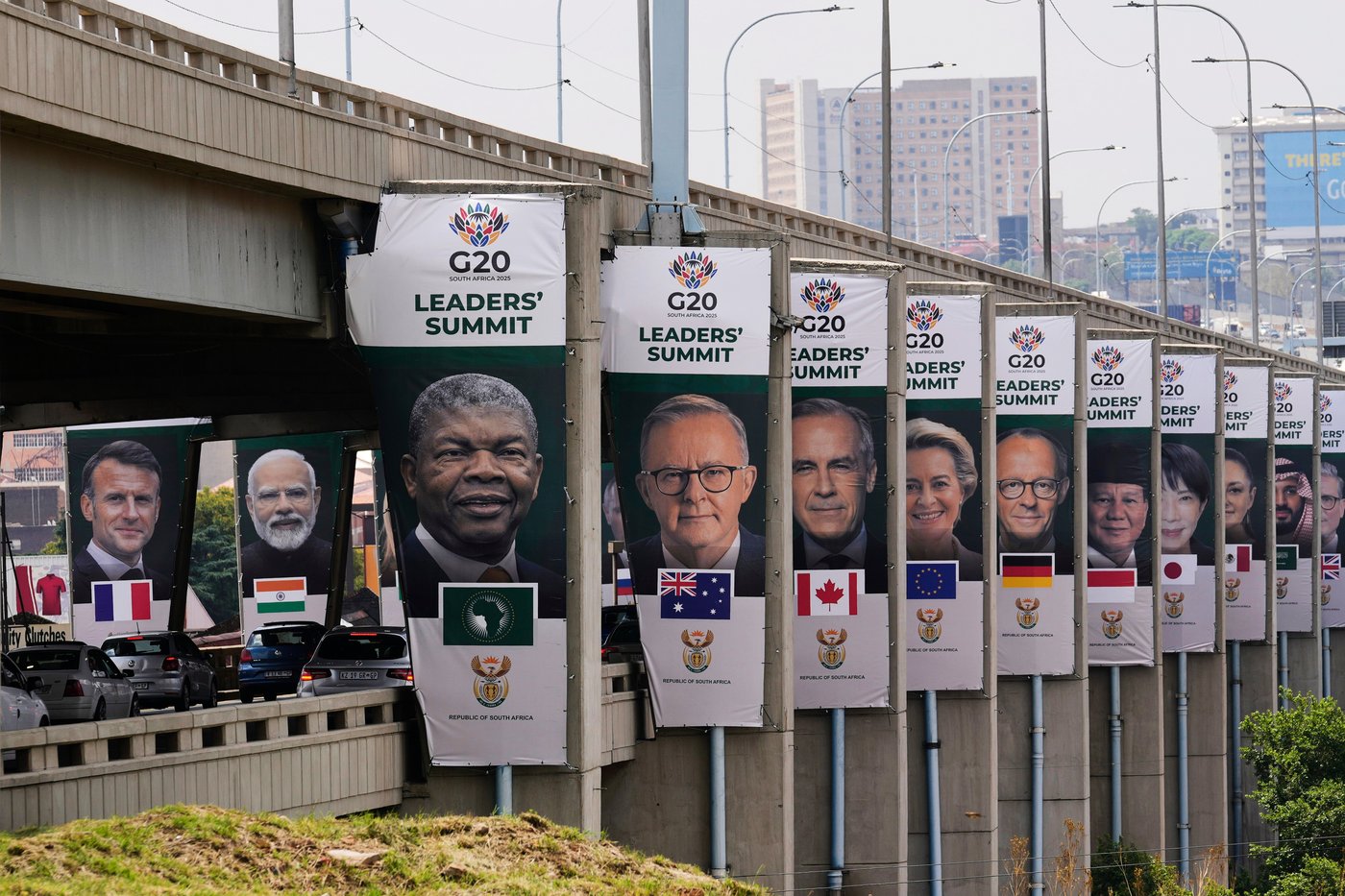Elevate your local knowledge
Sign up for the iNFOnews newsletter today!
Sign up for the iNFOnews newsletter today!
Selecting your primary region ensures you get the stories that matter to you first.

JOHANNESBURG — Prime Minister Mark Carney has made Canada’s first-ever cut to funding for a major program for fighting infectious diseases in the world’s poorest countries — a move that has been sharply criticized by Canada’s development sector.
The announcement of Canada’s $1 billion contribution to the Global Fund — down more than 17 per cent from its last contribution in 2022 — came just before Carney’s arrival in South Africa for the G20 summit.
“It does not make sense,” said Justin McAuley, Canadian spokesman for the One Campaign, which advocates for global investment in programs to support Africa.
“We have game-changing drugs available now that can essentially put an end to the AIDS crisis, but stepping back at such a scale right now is quitting a marathon in the last kilometre.”
The Global Fund helps fight diseases such as AIDS, tuberculosis and malaria. Canada has supported the fund since its inception in 2002.
The fund’s programs distribute mosquito nets to protect populations from malaria and provide medication and treatments to people living with HIV and tuberculosis.
The Global Fund replenishes its contributions every three years.
Canada’s $1.02 billion contribution for 2026 to 2028 is $190 million lower than its contribution for 2022 to 2025.
That 2022 pledge of $1.21 billion represented a 30 per cent increase in Canada’s contribution at the time.
Carney had his G20 representative, Cindy Termorshuizen, make the announcement Friday in Johannesburg, while the prime minster was flying to the summit.
“This pledge reflects Canada’s continued leadership in global health, while aligning with broader domestic priorities and recalibrating contributions to a pre-pandemic scale,” Global Affairs Canada wrote in a news release.
“Canada is committed to doing its part in finding global solutions to global problems. This means investing in strong partnerships, like the Global Fund, that are achieving a significant return on investment, to drive meaningful progress.”
McAuley said the government’s cuts don’t follow the logic of investing in proven solutions, given that the Global Fund has said its programs have helped to save 70 million lives.
“The Global Fund is the single greatest, most effective investment that countries can make in global health,” he said.
“Canada has always answered the call and done our fair share. This retreat, this cut, breaks that legacy that showed Canadians care.”
Adam Houston, Doctors Without Borders head for Canadian advocacy, said he was “deeply disappointed” by the cut.
“Canada has chosen not to lead, but to follow in the footsteps of other countries whose cuts to global health this year have already had deadly consequences,” he wrote. “Such cuts will fuel the reversal of progress in the fight against HIV, TB and malaria.”
Earlier this week, Doctors Without Borders warned that the Global Fund is in danger of not hitting its US$18 billion target to fund the next three years.
In a statement endorsed by groups such as the HIV Legal Network and the Stephen Lewis Foundation, Results Canada called the cut “a move that undermines progress against three of the world’s deadliest infectious diseases and weakens Canada’s credibility as a reliable global partner.”
Results noted that the cut comes “at a time when global stability, Canadian prosperity, and lives quite literally hang in the balance.”
Germany and the United Kingdom also reduced their contributions — Germany by 17 per cent and the U.K. by about 15 per cent. Both countries will contribute the equivalent of about $1.6 billion over the three years.
The United States, typically the fund’s largest donor, contributed US$6 billion to the three-year fund cycle in 2022. On Friday, it announced a US$4.6 billion contribution. As of Friday afternoon, the fund had garnered US$11.4 billion in total.
The fund’s eighth replenishment summit was held on the eve of the annual G20 summit in Johannesburg, which U.S. President Donald Trump is boycotting.
The summit chair, South African President Cyril Ramaphosa, has put a major focus on rising global inequality, from access to financing to medical services.
This report by The Canadian Press was first published Nov. 21, 2025.
— With files from David Baxter in Ottawa
This site is protected by reCAPTCHA and the Google Privacy Policy and Terms of Service apply.
Want to share your thoughts, add context, or connect with others in your community?
You must be logged in to post a comment.